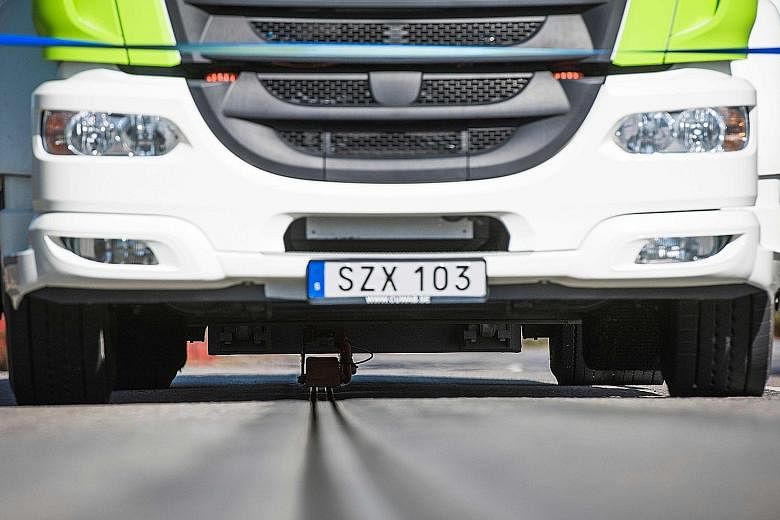STOCKHOLM • Sweden has opened the world's first electrified road that recharges the batteries of vehicles driving on it.
About 2km of electric rail has been embedded in a public road near Stockholm and the government's roads agency has drafted a map for future expansion, reported The Guardian.
Sweden has set a target of reducing greenhouse gas emissions in the transport sector by 70 per cent by 2030.
The road, which links Stockholm Arlanda airport to a logistics site outside the capital, is divided into 50m sections with an individual section powered only when a vehicle is above it.
Energy is transferred from two tracks of rail in the road through a movable arm attached to the bottom of a vehicle. When the vehicle stops, the current is disconnected.
The technology aims to solve the thorny problems of keeping electric vehicles charged and the manufacture of their batteries affordable, said The Guardian.
A former diesel-fuelled truck owned by the logistics firm, PostNord, was the first to use the road.
Mr Hans Sall, chief executive of the eRoadArlanda consortium behind the project, said both current vehicles and roadways could be adapted to take advantage of the technology. He said there are roughly half a million kilometres of roadway in Sweden, of which 20,000km are highways.
"If we electrify 20,000km of highways, that will definitely be enough," he was quoted as saying.
"The distance between two highways is never more than 45km and electric cars can already travel that distance without needing to be recharged. Some believe it would be enough to electrify 5,000km."
At a cost of €1 million (S$1.6 million) per kilometre, the cost of electrification is said to be 50 times lower than that required to construct an urban tram line.
Mr Sall said: "There is no electricity on the surface. There are two tracks, just like an outlet in the wall. Five or six centimetres down is where the electricity is. But if you flood the road with saltwater, then we have found that the electricity level at the surface is just one volt. You could walk on it barefoot."
The Swedish government, represented by a minister at the formal inauguration of the electrified road on Wednesday, is in talks with Berlin about a future network.
In 2016, a 2km stretch of motorway in Sweden was adapted with similar technology but through overhead power lines.

